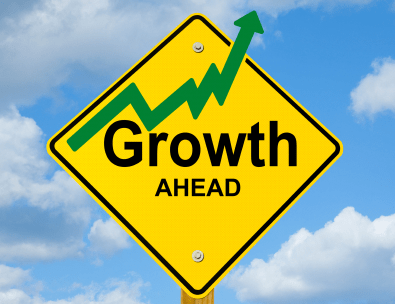Oh Yes, You Can!

By Kathleen Quinn Votaw
Do you believe that anything’s possible? Or do you see roadblocks in your way? When you change your predominant mindset from a fixed to a growth orientation, everything in your life—and your business—can change. It’s your choice as to whether you approach things from an "I can’t do it” or from an “I can't do it - yet” mindset. There’s a wealth of scientific research showing that a fixed mindset limits effort and success, while a growth mindset opens up a world of positivity and opportunity. This means we should all be developing our growth mindset. It’s also the quality we should be looking for in every job candidate.
Psychologist and author Dr. Eve Grodnitzky defines mindset as: “A specific set of beliefs about your own (and others’) skills and abilities that shapes how you perceive, understand and react to…pretty much everything.” Of course, mindset is just one of many factors that affect what we think and how we act—but it’s a major factor. It determines whether we believe that people can change and develop our intelligence and abilities or that we can’t. Our mindset has powerful implications for us personally and professionally.
A fixed versus a growth mindset looks something like this:
- Fixed mindset: you believe you’re naturally good at something or you’re not; you are who you are. Growth mindset: you believe you can do about anything through learning and practice.
- Fixed mindset: you resist change, hide your flaws, don’t like feedback; and usually say “no.” Growth mindset: you’re highly adaptable, welcome and act on feedback, and love a challenge.
- Fixed mindset: you need to be right and show that you’re smart, don’t like to be challenged, and find comfort in the status quo. Growth mindset: you prepare and make the effort, you’re creative, and continually seek to improve.
- Fixed mindset: you’re risk averse, rarely innovative, and believe that “good enough is good enough.” Growth mindset: you’re open to other perspectives and love to try new things.
- Fixed mindset, you let your failures define you and success is all about the outcome. Growth mindset: failures are mere setbacks and success is based on what you learn in the process of doing.
There’s really no question about the benefits of having a growth mindset. Everyone is a mix of both fixed and growth, but who do you most want to be? And, as important, who would you rather hire? According to Mindset Works’ CEO, Eduardo Briceño, it’s not hard work, focus and persistence that are the keys to achieving our goals and success. Rather, a growth mindset is how you reach your full potential. The other factors are by-products of that mindset.
How to develop a growth mindset
We can develop our growth orientation by paying attention to what we think and say to ourselves and to others, and then choosing to act in growth mode. You’ll find that being aware and acting with your growth mindset will benefit you in a variety of circumstances, from interpersonal relationships to your health.
The benefits are no less significant in your business. Your personal development of a growth mindset will serve as a model for others in your organization as you welcome and act on their feedback; mentor others; and solve problems more effectively.
In the January 2016 Harvard Business Review, Dr. Carol Dweck, of Stanford University, elaborates: “When entire companies embrace a growth mindset, their employees report feeling far more empowered and committed … In contrast, people at primarily fixed-mindset companies report more of only one thing: cheating and deception among employees…”
You’re probably wondering, “How can we become a growth-mindset company? First, it’s up to the CEO and managers to create a growth-mindset oriented culture through education and modeling—and put it in your mission and/or values statements. In the future, assess every job candidate for mindset. Dr. Grodnitzky has some suggestions for how to determine it.
Without “leading” candidates, ask the following behavioral interview questions; listen for responses consistent with growth and fixed mindsets; and then dig deeper.
“Tell me about a recent time when you…”
- …were inspired to learn something new.
- …took on a significant challenge.
- …failed at something.
- …went above-and-beyond the call of duty.
- …received feedback.
- …were inspired by someone else.
- …felt like the smartest person in the room.
- …chose not to do something challenging.
- …gave up on something.
- …gave less than your best effort.
- …felt resentful of someone else’s success.
You will be amazed at how differently growth- and fixed-mindset candidates respond.
Ready or not, the holidays have arrived. That means we have family dynamics to deal with, both at home and at work. If Dr. Grodnitzky is right that our mindset shapes how we perceive, understand and react to…pretty much everything, then this would seem to be the best time to start developing your mindset. As Henry Ford once said, “Whether you think you can, or you think you can’t—you’re right.” Choose growth for a more peaceful holiday season and productive New Year.
